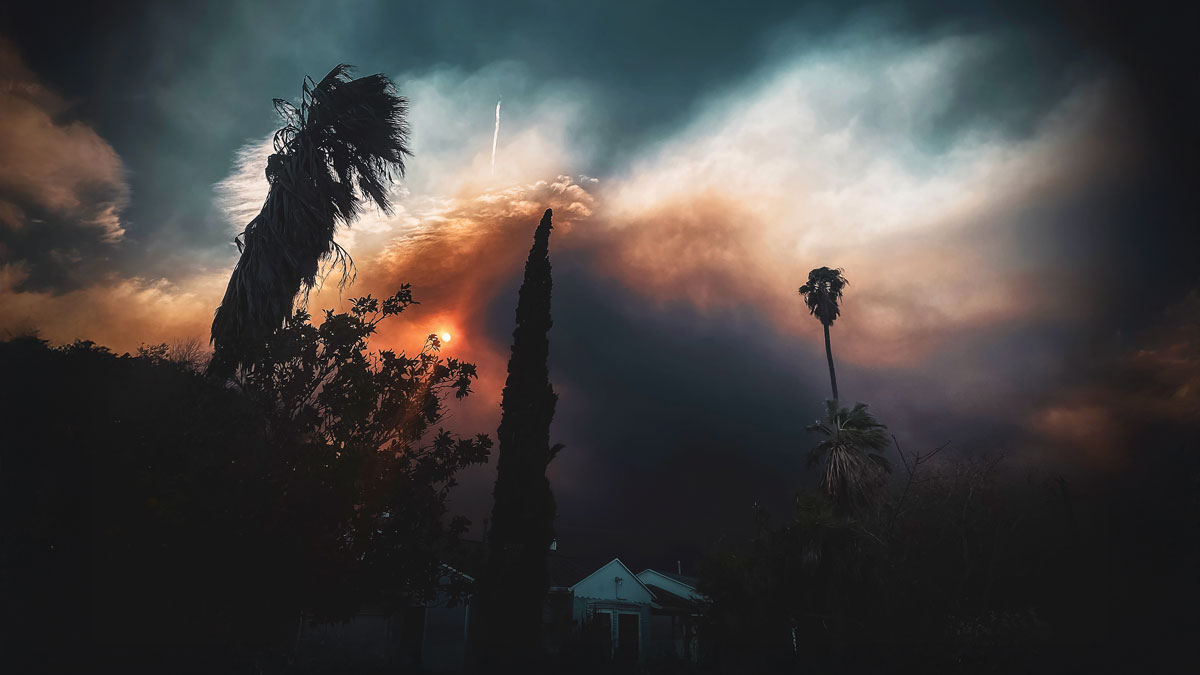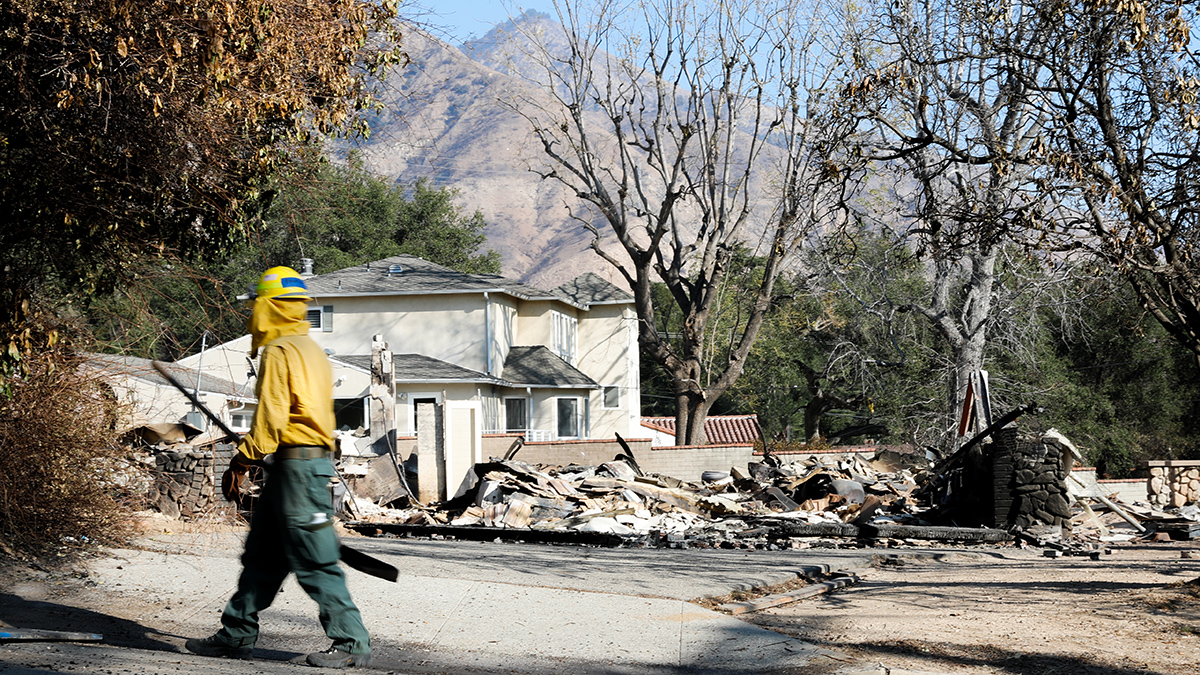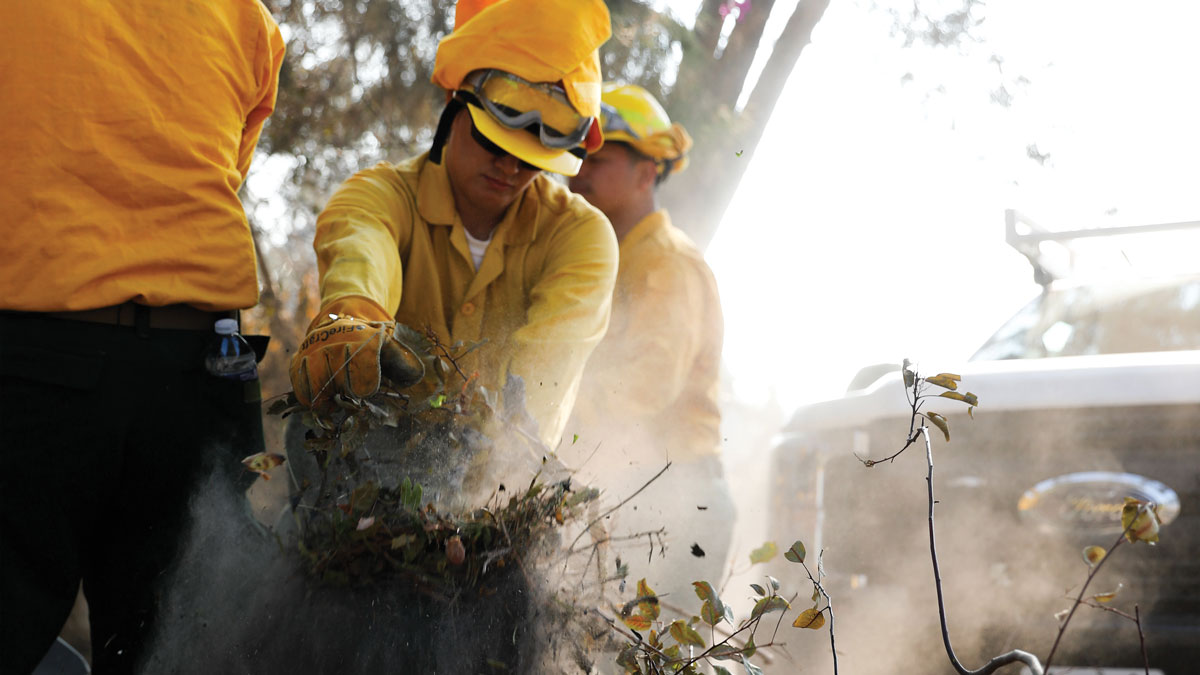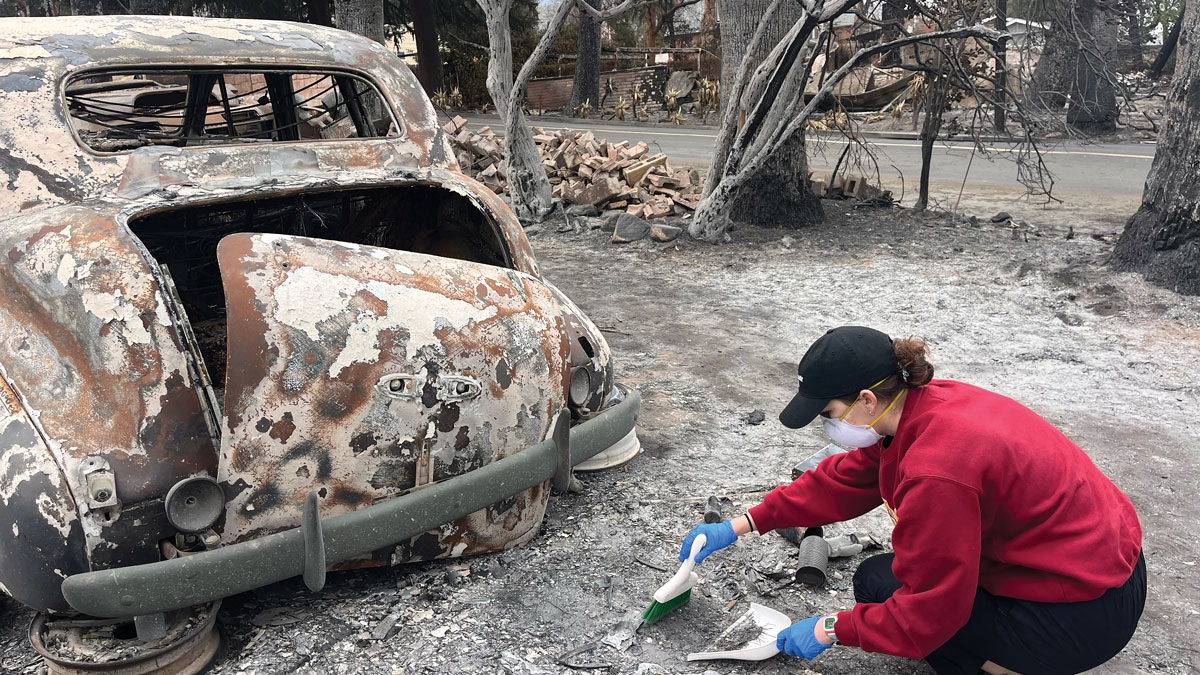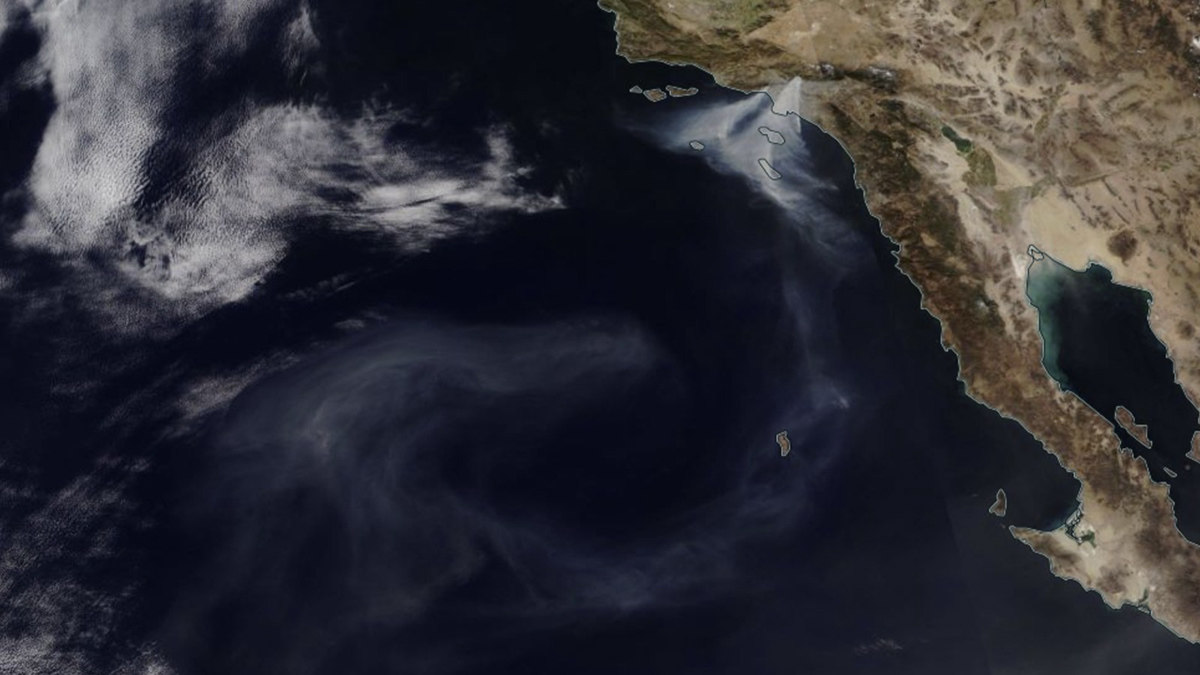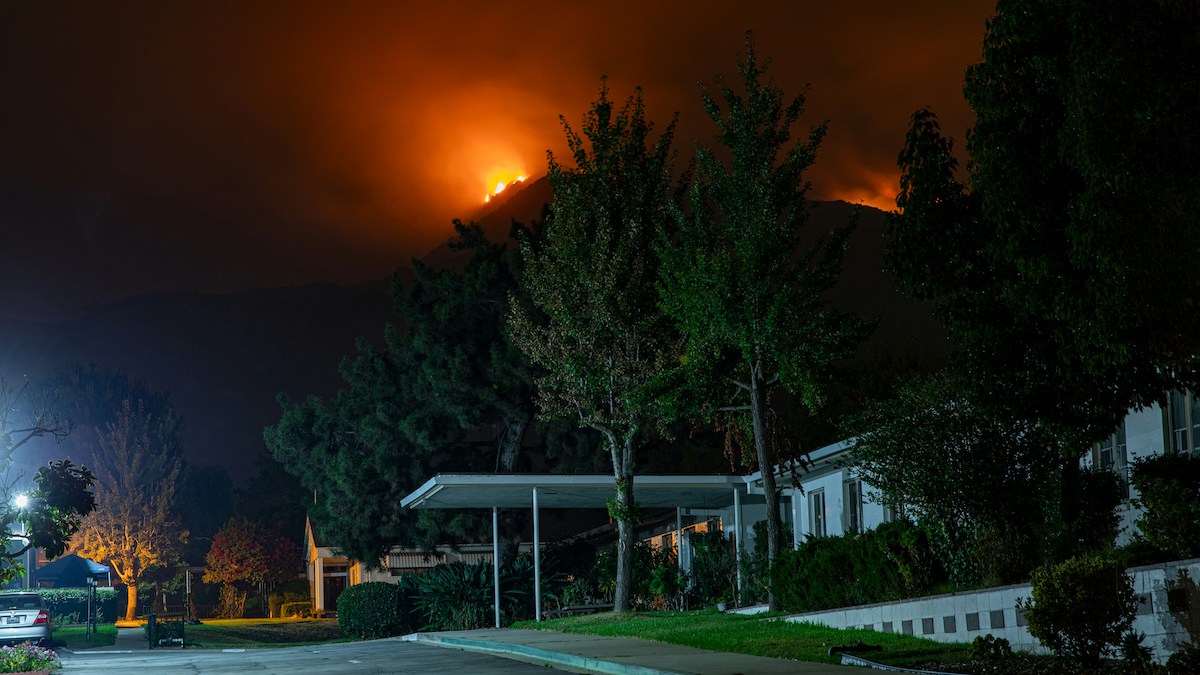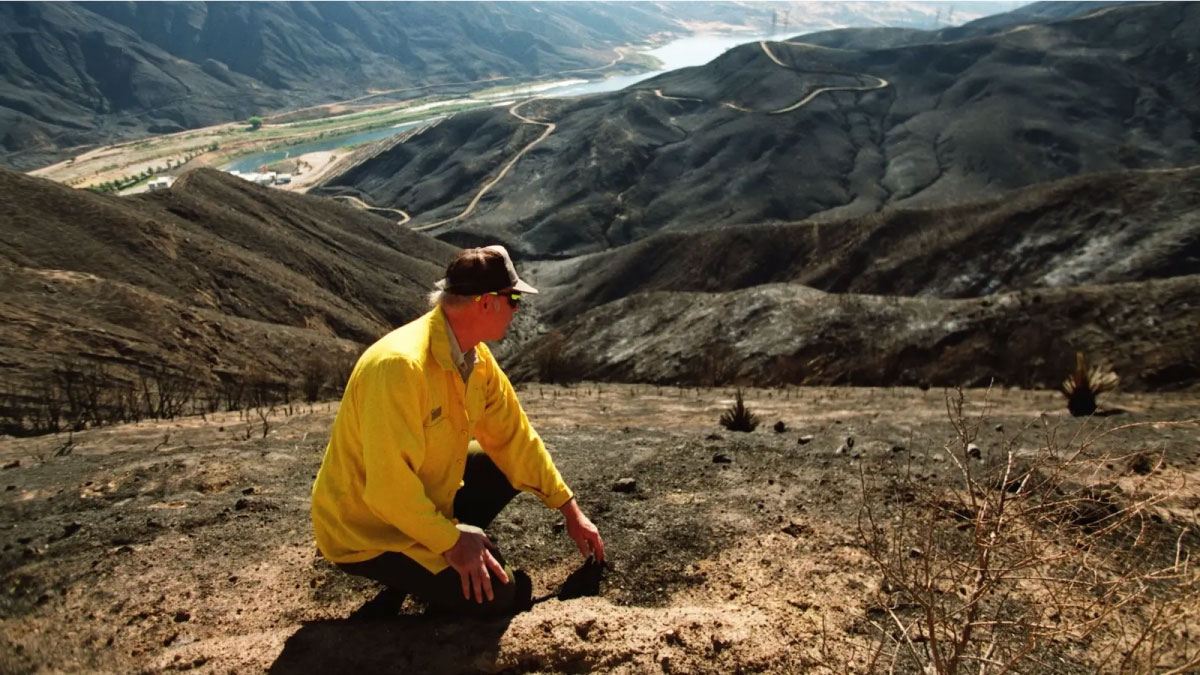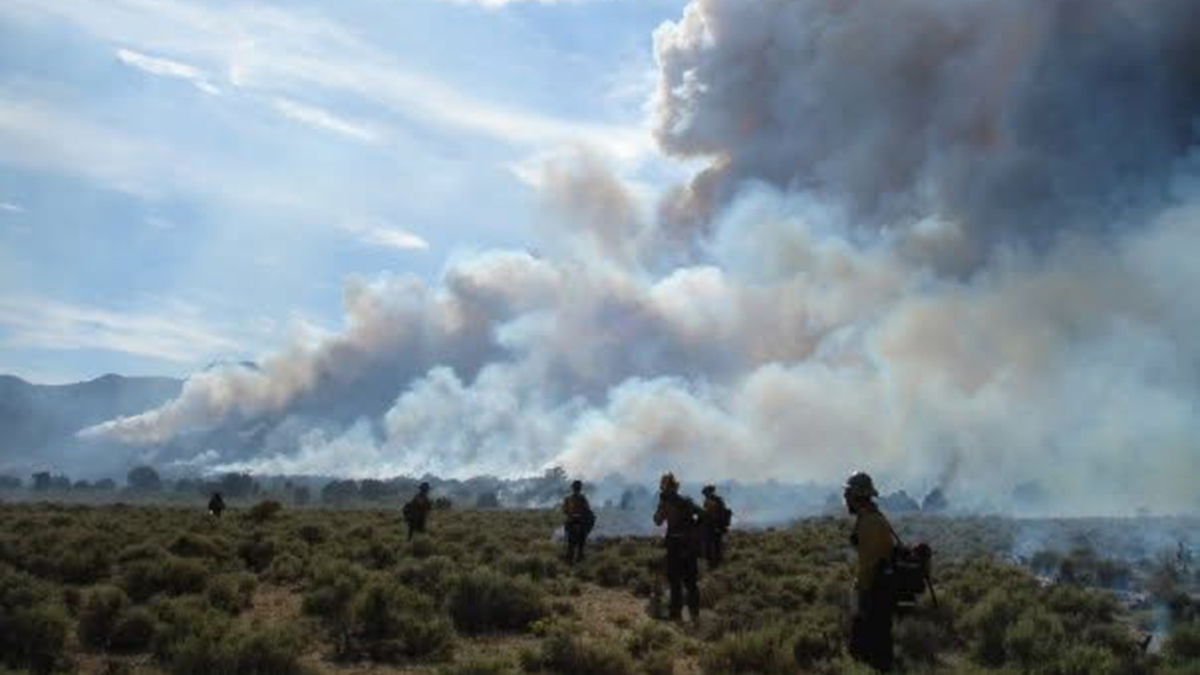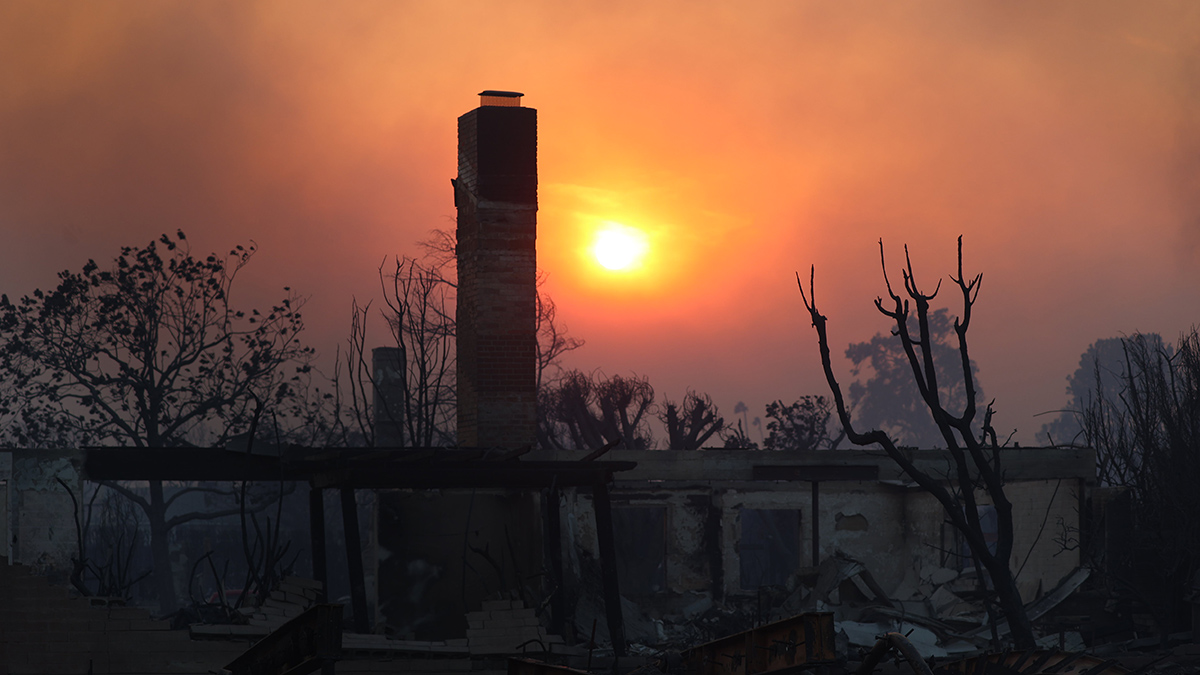In January 2025, wildfires devastated Los Angeles neighborhoods and wildland alike. Scientists are contending with their lasting effects on air, land, and water.
wildfires
When Disaster Science Strikes Close to Home
How have scientists across Los Angeles used their skills to help their communities recover from the 2025 fires?
Where There’s Fire, There’s Smoke
Using both existing and newly launched monitoring instruments, researchers work to better understand air quality during and after the Los Angeles wildfires.
Burning Urban and Wild Land Alike
When more densely populated Altadena and Pacific Palisades burned along with surrounding wildlands, hazards for residents didn’t stop when the fires were contained.
Scrambling to Study Smoke on the Water
Timely action shows the impact of urban fires on freshwater and marine ecosystems.
California’s Getting an Earlier Start to Wildfire Season
Human-caused climate change has pushed the onset of fire season in the state to as much as 46 days earlier than it was 30 years ago.
Pollution from Wildfires Can Contaminate Our Water for up to 8 Years, Study Finds
An analysis of 500 watersheds found levels of organic carbon, phosphorus, and other pollutants up to 103 times higher after a wildfire.
The Goldilocks Conditions for Wildfires
Twenty years of data from around the world show that areas that are not too dry and not too wet are most conducive to wildfire burning.
Charting a Path from Fire Features to Health Outcomes
A new framework aims to better equip scientists, communities, and decisionmakers to characterize data and rapidly respond to wildland-urban interface fires and their effects on public health.
Los incendios forestales amenazan los suelos volcánicos de los Andes peruanos
Los frágiles ecosistemas de las tierras altas mostraron baja resiliencia a los incendios, lo que los hace más vulnerables a la degradación a largo plazo.

